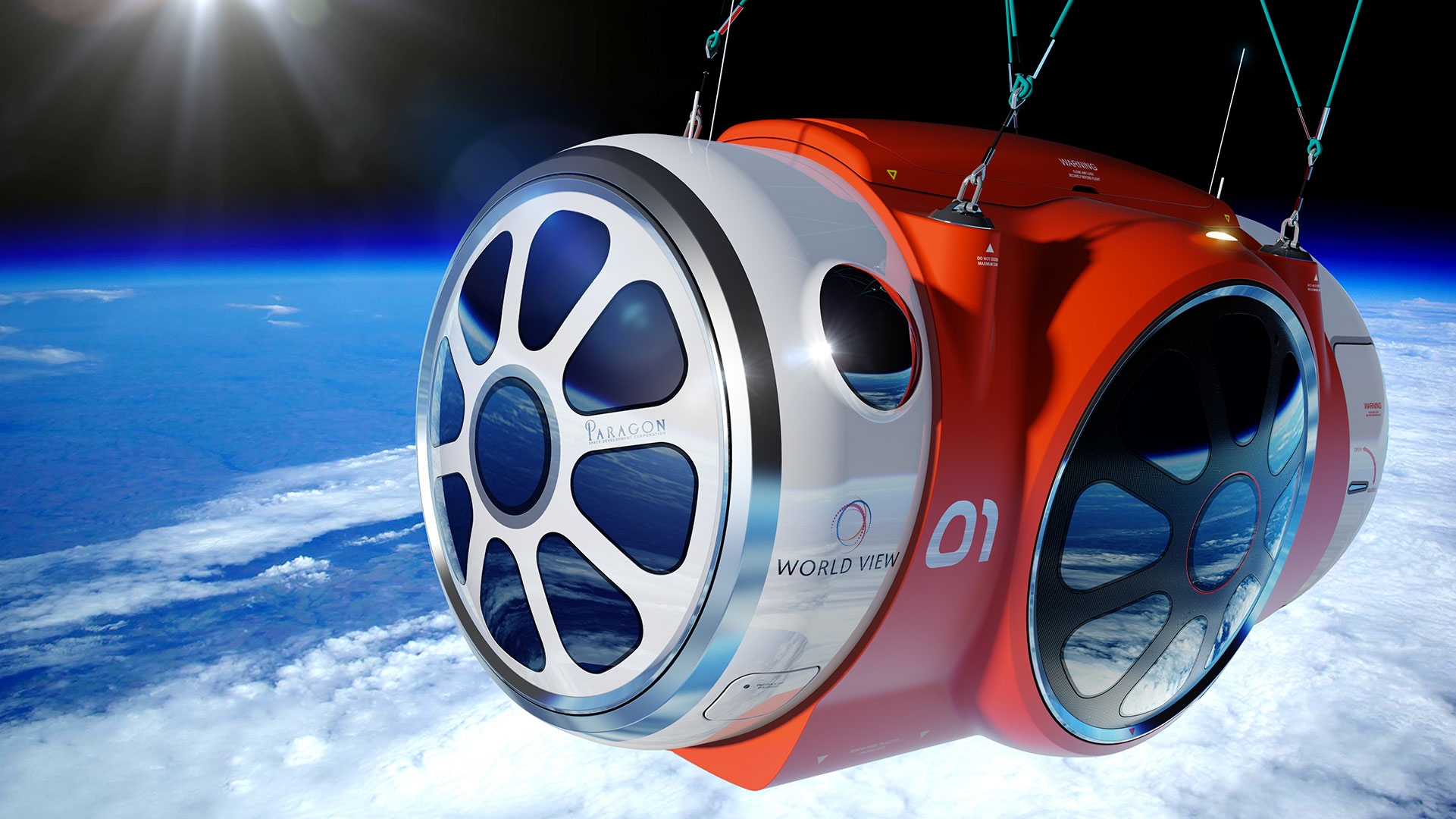Tucson-based World View, which has received national attention for its space tourism plans, has taken on a new challenge beyond taking passengers to the edge of the cosmos. The company is expanding to carry payloads – having found a way to overcome restrictions on geographical flight location and flight elevation, short flight duration, high costs and limited lifespan that are faced by such vehicles as balloons and drones.
Innovators at World View have developed what they call “Stratollites” – balloons that offer directional capability over remote areas for extended periods. For the first time, new high-altitude capabilities will be offered to commercial customers at a fraction of the cost of existing technologies.
Key to the Stratollites’ potential is an ability to fly using a variety of trajectories, allowing them to circumnavigate the earth or maintain position over specific areas for days, weeks and eventually months at a time. This allows more sustained measurements and monitoring capabilities over a targeted area.
World View Experience.mp4 from World View on Vimeo.
Stratollites can launch rapidly on demand and safely return to earth after mission completion. They can carry commercial payloads such as remote sensors and telescopes. Such capabilities open opportunities for commercial and government applications including:
Communications – Stratollites can carry service providers’ cellular device signals and communications arrays over remote locations — even before, during and after natural disasters, aiding first responders in their efforts to locate and assist those in distress.
Remote Sensing – They offer a robust, rapidly deployable platform for real time visual and instrument observation over specific areas of geographical interest.
Weather – Stratollites are able to gather weather data at the source and in set positions, making weather forecasting much more accurate and timely.
Research – They offer an affordable platform for research applications ranging from solar and astro-physics to atmospheric and earth sciences.

World View Stratollite
“There are other high-altitude vehicles but the Stratollite concept is something that’s never been done before,” said Deepak Kamra, general partner at Canaan Partners. “No other balloon, satellite or drone has been able to successfully complete long-endurance flight over a specific area of interest and safely return to Earth.
Kamra and Canaan Partners are more than fans. The firm is the lead investor in the closing of $15 million Series B round to accelerate the development and commercial adoption of Stratollites. Other participants include Norwest Venture Partners, Tencent, Moment Ventures and Base Ventures. In addition, Kamra; Vab Goel, general partner at Norwest Venture Partners; and Tom Ingersoll, former CEO of Skybox Imaging, have joined World View’s Board of Directors.
“Ultimately, we’re creating a new category with these Stratollites,” said Jane Poynter, CEO of World View. “In the end, we’d like to make space accessible to everyone and use the technology at hand for the benefit of humankind.”
The company has previously proven its ability to repeatedly and rapidly fly to the edge of space and operate in the stratosphere, reaching heights up to 26½ miles. While trillions of dollars are spent on applications in space and the troposphere, the stratosphere is virtually untapped.
Helping World View reach these new heights is Alan Stern, a co-founder and chief scientist recently named to the 2016 TIME 100. The annual list of the 100 most influential people in the world recognizes the activism, innovation and achievement of the world’s most influential individuals.
Stern is an internationally recognized planetary scientist and space program executive who had served as NASA’s chief of all space and Earth-science programs. He is being honored for his leadership of NASA’s New Horizons Mission to Pluto, which launched in January 2006 and explored Pluto in 2015 to help humanity understand it and other small planets at the edge of the solar system. Stern was previously named to the Time 100 in 2007.
His work is helping change the way World View conducts research in the stratosphere. His knowledge and breadth of experience has been critical to the commercial success of World View and its effort to provide affordable and routine access to space.
World View’s commercial flight services division already is in operation, routinely flying payloads to space via high-altitude balloon for a variety of government, commercial and education customers. With more 50 flights completed and working partnerships with organizations like NASA, Raytheon and Northrop Grumman, the company has evolved into a preferred full-service launch provider for the global commercial community.




